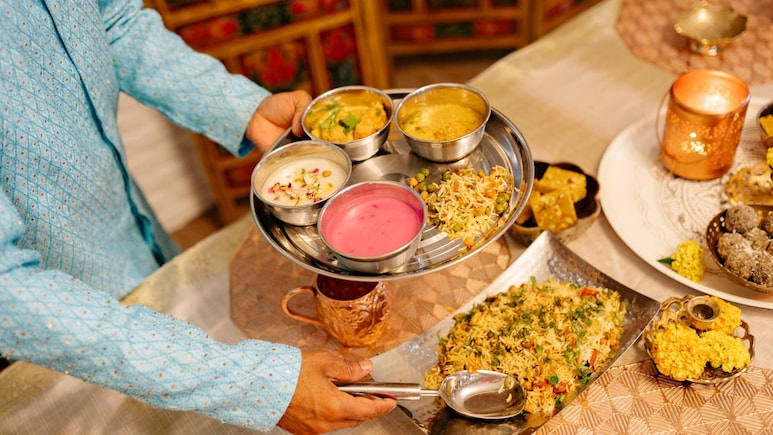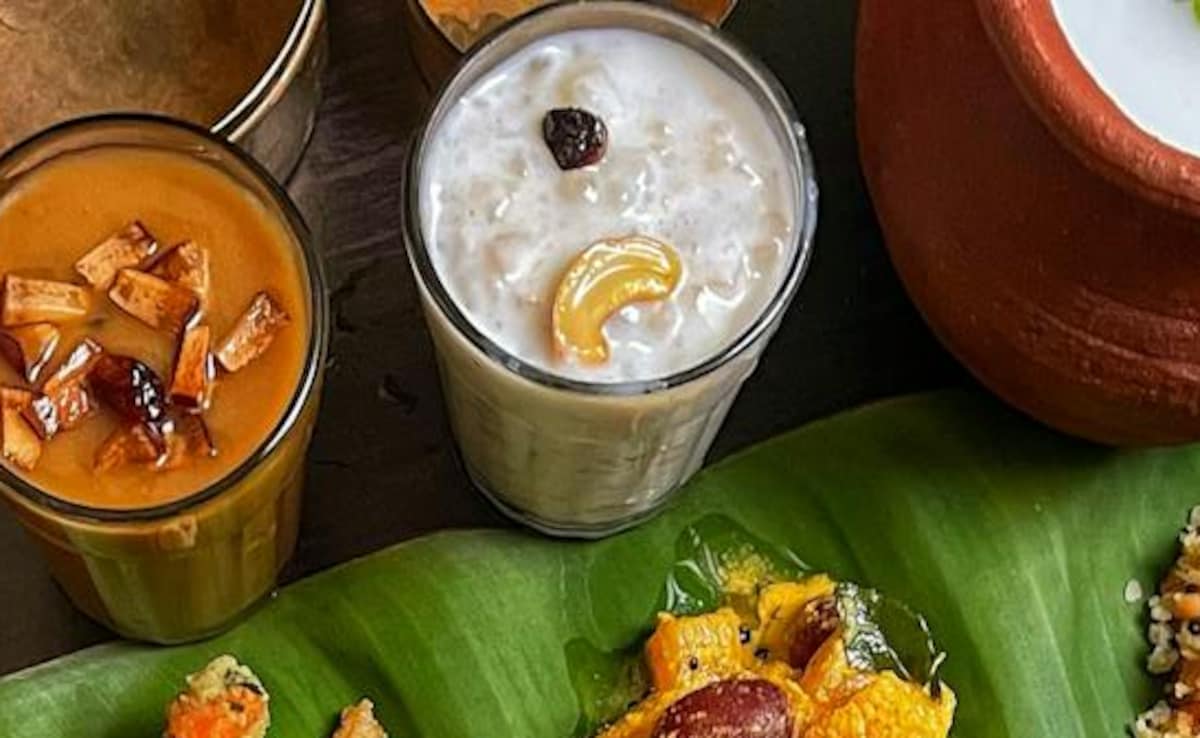
Indian festivals correspond to lights, gatherings, and a lot of food. Food is the love language of our festivals, from the exchange of sweet boxes to munching fried snacks passed around at every celebration. All this cheer, however, comes with late nights, busy schedules, and abrupt routines, affecting health. The heart, in particular, often ends up paying the price. With World Heart Day being observed on September 29, falling right in the middle of Navratri and just ahead of a major festive month, the timing serves as a reminder to pay close attention to heart health. Heart disease continues to be one of the leading causes of illness and mortality worldwide, yet a large share of the risk is preventable.
Mindful eating and mindful lifestyle choices can help strike a balance, letting us enjoy the celebrations without stacking a long-term burden.
Eat What You Love, But In Balance
Food is central to every festival. Avoiding it altogether isn't realistic. But moderation is the key. The first meal of the day should be light; options like a salad or a bowl of fruit can be a good option. The fibre is not only good for your health, but it will also reduce the chances of overeating later. Use smaller plates to help control serving sizes, and slow down while eating so that your body has time to register fullness. A few laddoos or kachoris won't hurt when enjoyed in moderation, but piling them on every day will.
Keep Moving Even On Busy Days
Amid shopping trips, cooking, and meeting relatives, exercise is often the first thing we drop. Yet staying active is even more crucial during festivals. If you don't have time for a workout, you can do things like dancing during gatherings, walking to the market, or taking the stairs instead of the elevator at all times. What matters is consistency and avoiding long hours of sitting still. Even 15-20 minutes of movement daily helps circulation and lower stress.
Add Colour To The Plate
Festive spreads are usually beige: fried snacks, sweets, and bread-based dishes. Adding brightly coloured fruits and vegetables changes both the look and the nutrition. Tomatoes, spinach, carrots, papayas, pomegranates, and citrus fruits not only brighten meals but also load the body with antioxidants, fibre, and vitamins. They're light and filling and help balance out heavier foods.
Be Smart With Your Moves
If you don't have time for a workout, a few food replacements here and there can help you achieve your daily health target. Replace refined grains like white rice or maida with whole grains such as brown rice, whole wheat, or millets. Pairing them with dal, beans, or non-veg options like fish or chicken can be a good option. These foods release energy slowly, keeping you fuller without sudden sugar spikes. Such swaps don't take away from the festive taste but give your heart less to worry about.
Choose Better Fats
Traditional cooking often uses ghee, butter, or vanaspati, all of which are heavy in saturated fat. Enjoy them in moderation, but try balancing with oils like olive, sunflower, or groundnut. Dry fruits, avocados, flaxseeds, and nuts are also excellent sources of healthy fats and fibre. Just don't go overboard; nuts add goodness but also calories.
Keep Fried Foods And Sweets In Check
Samosas, jalebis, and pakoras are festive favourites, but too much fried food puts stress on the heart. Keep them as treats, not regular snacks. Where possible, opt for baked or air-fried versions. Similarly, limit added sugar. Choose fresh fruit over mithai when you can, or reduce sweetness when making sweets at home. Even small changes reduce the burden on blood sugar and heart health.

Photo Credit: Pexels
Cut Back On Smoking And Alcohol
Smoking, even in small amounts, raises heart risks. Alcohol, too, adds empty calories and can affect blood pressure and liver health. If you don't drink or smoke, avoid getting into it. If you already do, festivals are a good time to cut down with family support around you.
Manage Stress Before It Builds Up
Festivals are supposed to relax us, but the planning, spending, and constant social commitments can sometimes add pressure. Chronic stress raises cortisol levels, which then affect blood pressure and cravings. Take short breaks to reset. Practice deep breathing, go for a quick walk, or simply spend a few minutes alone in quiet. Even laughter with close friends can ease stress.
Don't Skip Sleep
Sleep has a direct link to stress levels and heart health. Midnight card parties and late-night chats are fun, but a tired body and mind leave you more prone to overeating, irritability, and high blood pressure. Try to rest for seven to eight hours. In case late nights can't be avoided, balance with short naps during the day.
Regular Health Check-Up
Conditions like high blood pressure, diabetes, or cholesterol are silent killers, causing major harm. A simple health checkup plays an important role in catching problems early. Prevention is always better than a cure.
A Season of Balance
Festivals are meant for joy, not rigid dieting rules. There's no harm in enjoying a favourite sweet or snack as long as it's balanced with healthier meals and regular activity. By eating mindfully, staying active, managing stress, and taking care of rest, we protect both our hearts and our festive spirit.
A happy heart ensures every celebration is brighter, not just this year, but for many years to come.
(By Dr. Bilal Thangal T M, Medical Lead NURA - Ai Health Screening Centre)
Disclaimer: The opinions expressed within this article are the personal opinions of the author. NDTV is not responsible for the accuracy, completeness, suitability, or validity of any information on this article. All information is provided on an as-is basis. The information, facts or opinions appearing in the article do not reflect the views of NDTV and NDTV does not assume any responsibility or liability for the same.
Track Latest News Live on NDTV.com and get news updates from India and around the world

